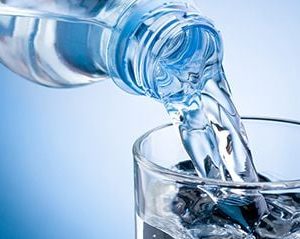- Could Your Grocery Store Meat Be Causing Recurring UTIs?
- Are You Making This Expensive Thermostat Error This Winter?
- Recognizing the Signs of Hypothyroidism
- 10 Strategies to Overcome Insomnia
- Could Artificial Sweeteners Be Aging the Brain Faster?
- Techniques for Soothing Your Nervous System
- Does the Water in Your House Smell Funny? Here’s Why
- Can a Daily Dose of Apple Cider Vinegar Actually Aid Weight Loss?
- 6 Health Beverages That Can Actually Spike Your Blood Sugar
- Treatment Options for Social Anxiety Disorder
High-Alkaline Water Won’t Prevent Kidney Stones

Trendy bottled water marketed as “alkaline water” isn’t likely to prevent kidney stones in a person plagued by them, a new study reports.
These products tend to have contain less alkali than is needed to alter urine pH level enough to keep stones from forming, said senior study author Dr. Roshan Patel, a urologist with the University of California, Irvine.
“While alkaline water products have a higher pH than regular water, they have a negligible alkali content – which suggests that they can’t raise urine pH enough to affect the development of kidney and other urinary stones,” Patel said in a university news release.
Alkaline water, also called high pH water, has become increasingly popular, researchers said in background notes.
Tap water has a typical pH around 7.5, while alkaline water has a pH in the range of 8 to 10, the researchers said.
Raising pH is a key strategy to prevent kidney stones in patients who’ve previously had stones, researchers said. This is typically done through potassium citrate tablets prescribed to patients.
But many patients aren’t fond of taking the large pills several times a day, and alkaline water offers an attractive alternative, researchers said.
To see whether high pH water could help, Patel and his colleagues tested five alkaline water products that are on the market. They also reviewed published data on other types of drinks and over-the-counter products that might increase urinary pH.
The five bottled alkaline waters all had similar pH levels, around 10.
But at a pH of 10, the tested products would still have an alkali content of just 0.1 milliequivalent per liter (mEq/L).
That’s a “trivial” concentration compared to the body’s typical metabolic acid production of 40 to 100 mEq/L per day, Patel says.
By contrast, other products available for purchase do have the potential to increase pH.
For example, plain old orange juice – with an alkali content of up to 15 mEq/L – provides the most cost-effective means of reaching a target alkali concentration of 30 mEq per day, researchers said.
Another effective, low-cost option is baking soda, although researchers said there are concerns about the sodium in the soda.
“Our findings may help to guide the selection of other treatments, including beverages and over-the-counter products, for preventing recurrent urinary stones,” Patel said.
The researchers noted that these are lab studies of products, and that clinical trials need to be performed to best test options for increasing urinary pH.
The new study was published in the Journal of Urology.
More information
The National Kidney Foundation has more about kidney stones.
SOURCE: American Urological Association, news release, Jan. 10, 2024
Source: HealthDay
Copyright © 2026 HealthDay. All rights reserved.










